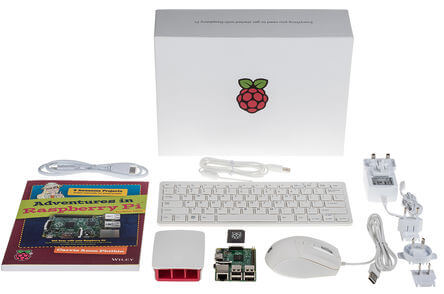With up to ten million sales in just four and a half years, this tiny computer has probably become the most prominent computer ever manufactured in Britain. A project that was initially intended to attract young students into the world of computer science, has surprisingly grown into some unexpected magnitude, now being used by both the young and old for a wide range of projects. Even more importantly, it has expanded with a great commercial reward for the organization.
All the revelations about the success of Raspberry Pi were made by Raspberry Pi founder Eben Upton, in a recent announcement on the company’s blog page. He said,
When we started Raspberry Pi, we had a simple goal: to increase the number of people applying to study Computer Science at Cambridge. By putting cheap, programmable computers in the hands of the right young people, we hoped that we might revive some of the sense of excitement about computing that we had back in the 1980s with our Sinclair Spectrums, BBC Micros and Commodore 64s.
At the time, we thought our lifetime volumes might amount to ten thousand units – if we were lucky. There was was no expectation that adults would use Raspberry Pi, no expectation of commercial success, and certainly no expectation that four years later we would be manufacturing tens of thousands of units a day in the UK, and exporting Raspberry Pi all over the world.
Raspberry Pi has become so popular today that you can accomplish several kinds of projects with it, including:
- Home automation
- Robotics
- Building a living room PC
- Building a mini web browser
- Building a Pi phone plus many more.
Deal: Learn DIY Robotics With The Complete Raspberry Pi 3 Starter Kit (55% off)

Therefore, the ten million sales may not have come as a surprise to the millions around the world who have used and benefited from it.
What is the future of the Raspberry Pi in the computer science ecosystem especially when it comes to calling attention to programming and advancing robotics among young people? Share your thoughts with us through the comment section below.

I don’t predict a bright future; according to the Raspberry P i group, the Raspberry had sold in excess of fifteen million units, more than one year ago.
The RPi Group has a long history of playing fast and loose with such insignificant items as specs, design flaws, problems, Gigabit-ethernet-which-isn’t (“Gigabit Ethernet” is a DIRECT QUOTE from the RPi people to ALL news outlets, to describe their crippled 300 MHz Ethernet upgrade to their latest product); heat problems which exist for everyone-else-but-them…
The RPi organization can churn out ‘grandstand’ after ‘grandstand’ (a Power-over-Ethernet add-on, for a cheap computer-trainer for 8-year-olds? Give me a break!), but refuses to fix THE problem which has existed since the very first day of the introduction of the very first Raspberry Pi: the fact that the Raspberry Pi has NO way to be turned off with a simple “on-off” switch.
Perhaps this NEGATIVE fifty-percent SWITCH in sales numbers is the Raspberry Pi Trading Group’s concession to the lack of simply designing a simple on-off switch.
Sorry, Raspberry Pi–your puffery is old, and really worn out.